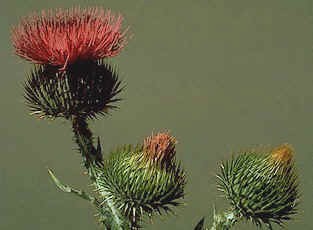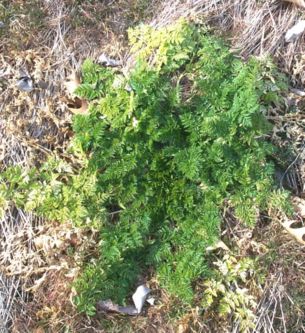821.3 Public Relations: Difference between revisions
m article construction |
m Per MT, numerous minor clarifications |
||
| Line 3: | Line 3: | ||
Protecting yourself, co-workers and the public is a must. | Protecting yourself, co-workers and the public is a must. | ||
'''Definition:''' The application of herbicides is a very sensitive issue in our society today. It is very important to understand the purpose of herbicides and that they are tools to accomplish a task. | '''Definition:''' The application of herbicides is a very sensitive issue in our society today. It is very important to understand the purpose of herbicides and that they are tools to accomplish a task. Understand the concept of integrated vegetation management. Knowledge and truth are the guidelines in discussions with the public. | ||
'''Reasons for good public relations:''' | '''Reasons for good public relations:''' | ||
| Line 24: | Line 24: | ||
::c. Reassure them that you are applying the pesticide correctly | ::c. Reassure them that you are applying the pesticide correctly | ||
::d. If you do not know the answer, tell them you will get back to them. | |||
'''B.''' As an applicator, be knowledgeable and informed when using pesticides. | '''B.''' As an applicator, be knowledgeable and informed when using pesticides. | ||
Latest revision as of 11:33, 8 April 2015

Protecting yourself, co-workers and the public is a must.
Definition: The application of herbicides is a very sensitive issue in our society today. It is very important to understand the purpose of herbicides and that they are tools to accomplish a task. Understand the concept of integrated vegetation management. Knowledge and truth are the guidelines in discussions with the public.
Reasons for good public relations:
- 1. Right of way operations are highly visible to the public.
- 2. Consideration of the public’s concerns.
Special Recommendations:
A. Be professional when answering the public’s questions.
- 1. Answer and respond to the public’s questions clearly and directly
- 2. View the questions asked by the public as an opportunity to:

- a. Educate the public
- b. Improve communication with the public
- c. Reassure them that you are applying the pesticide correctly
- d. If you do not know the answer, tell them you will get back to them.
B. As an applicator, be knowledgeable and informed when using pesticides.
C. Common questions that you as the applicator may respond to:
- 1. What are herbicides and why do we use them?
- 2. Do herbicides affect birds?
- 3. If my garden becomes contaminated, is it safe to eat the vegetables?
- 4. Are there any precautions to protect the groundwater?
- 5. Do the herbicides pose any risk to landowners and their family?
- 6. If a herbicide washes from the treated area into a pond, how does it affect the fish in the pond?
- 7. If cattle graze on treated areas of the right of way is the milk and meat from the animal safe to consume?
D. Take extra care when applying herbicides
- 1. Be familiar with the area to be treated before you apply herbicides
- 2. Take steps to avoid drift

- 3. Use the proper pesticides and equipment for the job
- 4. Regularly check application equipment and make sure it works
- 5. Wear the proper protective equipment
E. Do not take unnecessary risks when applying pesticides
F. A quick, direct response to the public’s concerns will improve communications between MoDOT and the public